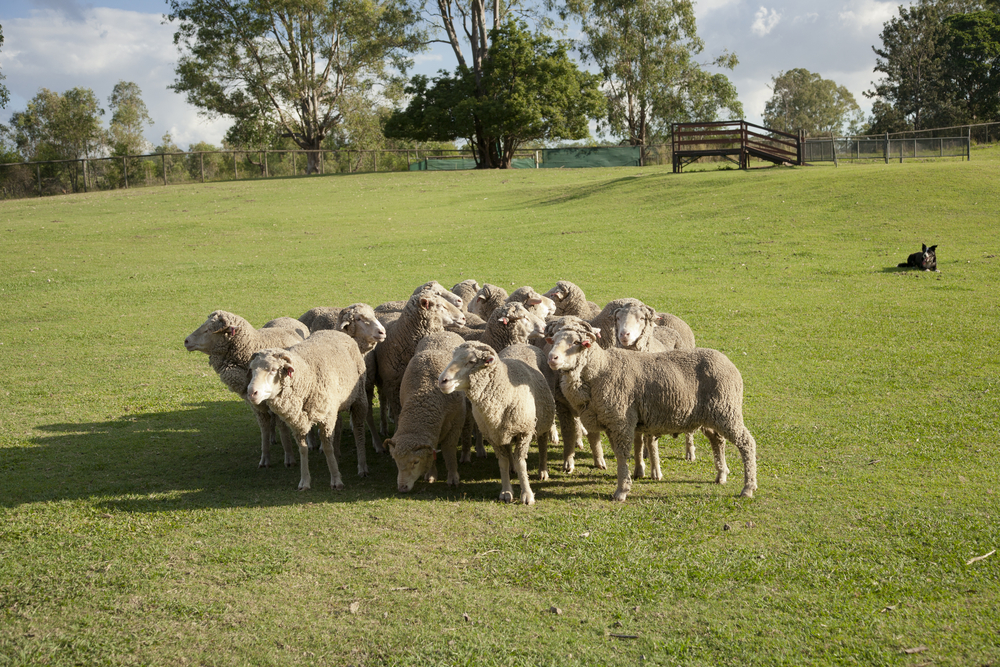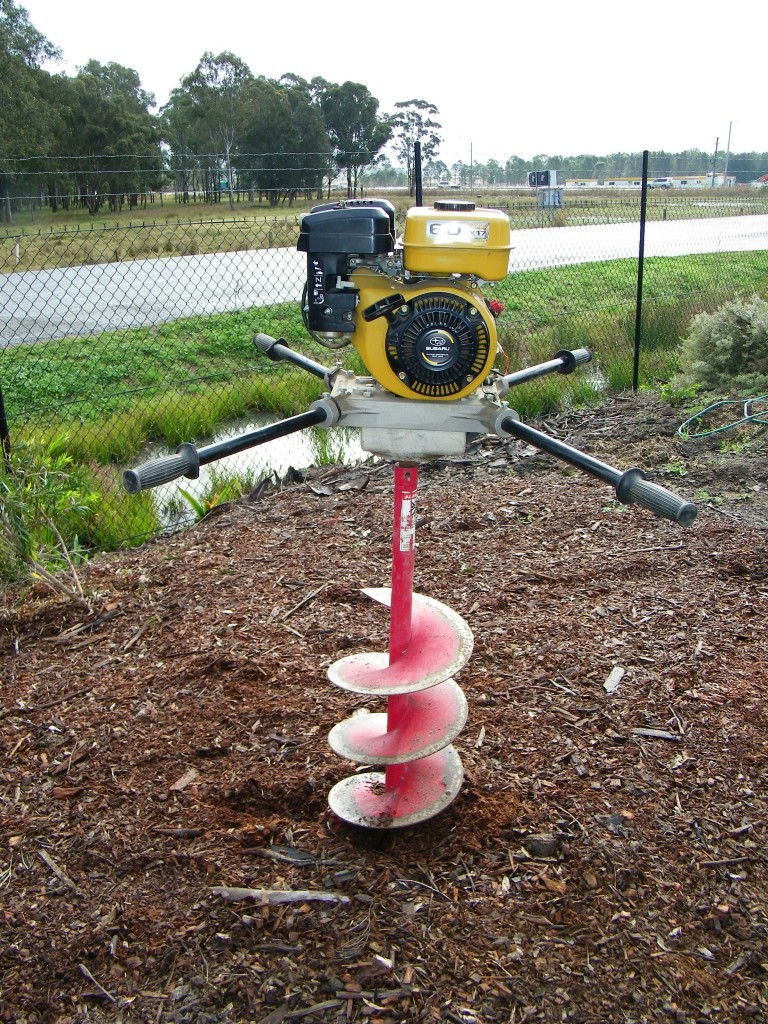Fencing is usually the largest capital expenditure on a sheep farm. Two types of fencing are required on sheep farms: perimeter and interior fencing. It is intended to last for a long period of time and should be constructed of high quality materials. Suitable perimeter fences for sheep are multi-strand, high-tensile, electric fences and woven wire fences with electric offset wires and barbed wires at the top and bottom of the fence.
Steel Fencing Installers
A well known installer of steel wire fencing is Fencing Specialist. They have a range of fencing types and fabrication facilities for fencing installation.

Post Hole Diggers
You may choose to use either a skid steer with a post hole digger, an excavator with a posthole digger, a tractor with a posthole digger or simply use a petrol powered hand held post hole digger. The choice is yours and will depend on your fitness, time constraints and number of holes to dig and access to the site. If you are looking to hire a posthole digger whether handheld or as an attachment and you are working on a farm in the Hunter Valley then you will find all the gear you need like posthole diggers at Hunter Valley Hire.

Understanding fencing types for sheep paddocks
The most appropriate fence design will depend on a number of factors:
- The type of animal needing to be kept in or out. Different animals have different fencing requirements — cattle for instance place much higher pressures on fences than sheep.
- Whether the fence is an internal fence or boundary fence – boundary fences may need to be sturdier than internal fences. Barbed wire may be recommended for boundary fences.
- The topography of the site – does the fence pass through gullies or up steep slopes and other issues such as whether the fence will have to withstand floods or fire.
High tensile wire typically carries three times as much zinc coating as barbed or woven wire, which accounts for its long expected life.
Three main types of wire are used in fencing; prefabricated rolls, plain wire and barbed wire.
The most expensive – prefabricated rolls – are a quick and easy way to erect a fence. They can be used in conjunction with plain or barbed wire.
Wire comes in many thicknesses (gauges) and tensile strengths. A fencing material supplier can help you decide what is the most appropriate gauge for your fence.
- Plain wire: Single strand of wire generally available in sizes ranging from 1.6mm to 4.0mm. Tensile ratings range from low tensile (LT) (or soft) through to medium tensile (MT) (or flexi) to high tensile (HT). Fencing with plain wire usually incorporates a 2.5mm HT or 2.5mm MT. Smaller diameter wires are generally used as tie wire. Larger diameter wires such as 4.0mm are generally used for anchoring a fence to a tie point, for high load bearings, in stay construction or for a more visible appearance.
- Barbed wire: Available in HT smaller diameter wires ranging from 1.57-1.8mm or in LT with a larger 2.5mm diameter wire ( commonly referred to as Iowa). Both variations are commonly used in rural fencing, HT barbed wire is also regularly used for security fencing.
Waratah make excellent fencing for sheep and are highly recommended in the industry. Waratah don’t just develop and manufacture premium fencing products, we provide fencing solutions. At Waratah, we talk to farmers and fencing contractors every day. Working together we know that even the best fencer cannot build a good low maintenance and long lasting fence using inferior materials, tools and equipment. When you invest in a Waratah fence, you’re investing in Waratah values. It’s these values that set Waratah apart. Waratah Sheep Fencing Catalogue Australia
